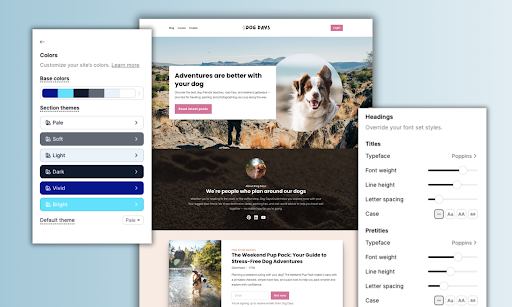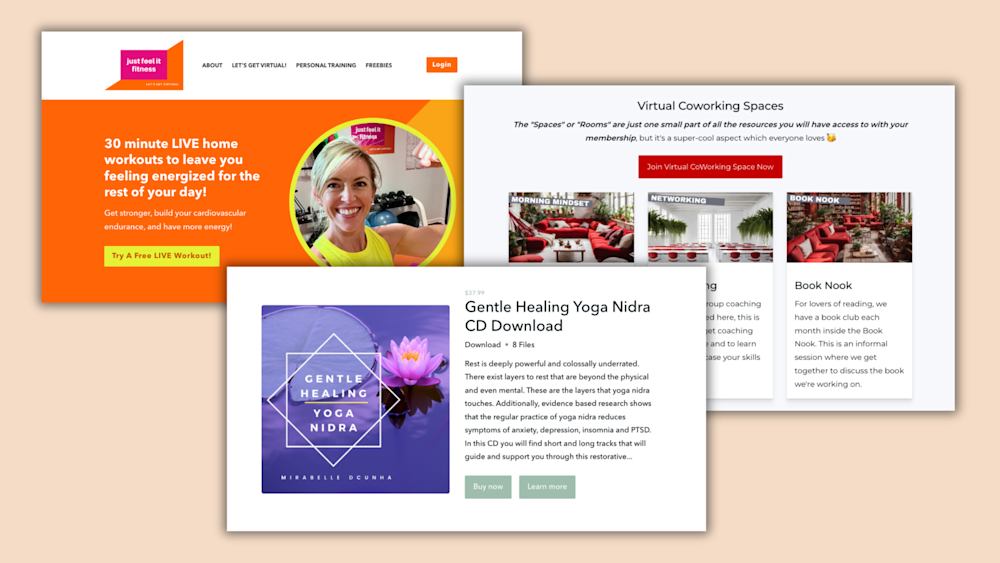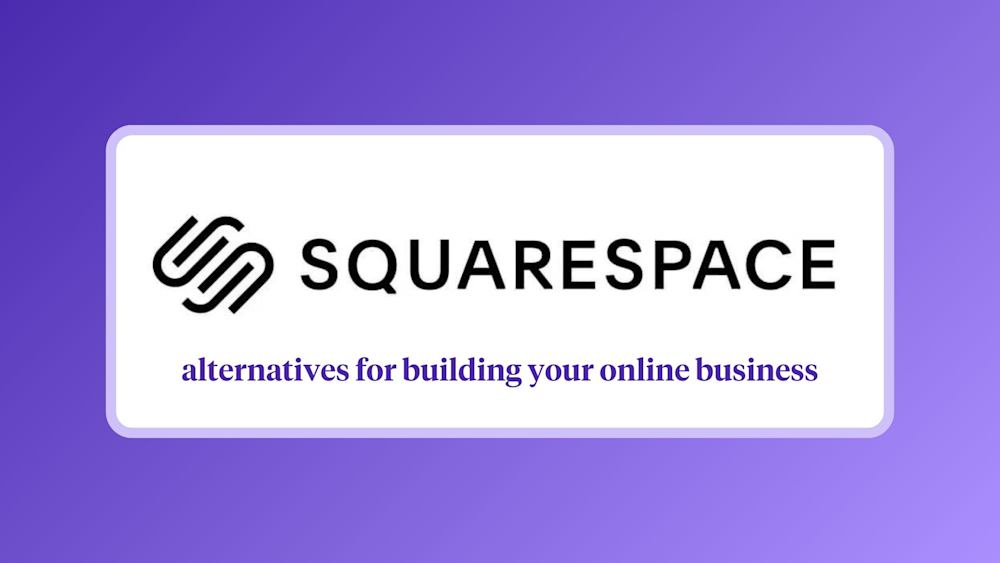You want to grow your coding skills and try something new.
Maybe you’re intrigued by the idea of starting your own business and becoming your own boss — or maybe you just want to earn some extra cash in your free time.
Either way, as a developer, you’ve got valuable skills that are in high demand, and that translates to a variety of unique side hustle opportunities.
Whether you’re looking to make some extra money with a side hustle or are thinking of making a move to self-employment, here are six different ways to turn your development skills into income.
6 side income ideas for programmers
1. Freelance online
Freelancing is one of the most popular ways to make extra income — and one of the most flexible.
That flexibility is a big reason that more Americans are freelancing now than ever before, with 36% of American workers reporting that they freelance.
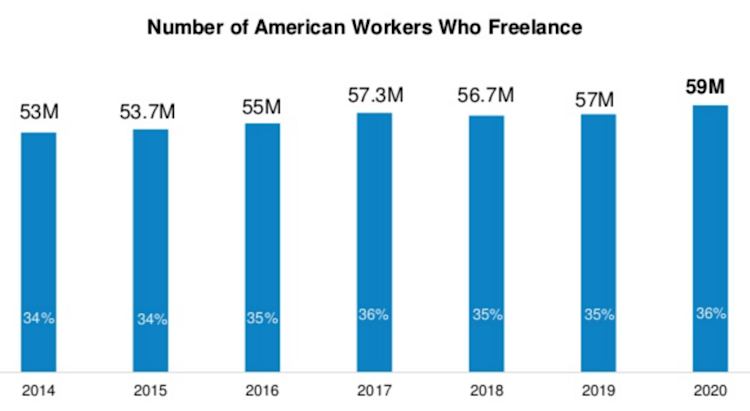
As a freelancer, you can choose which projects and clients you take on. There are freelance gigs to fit any coding language and skillset you can think of, from Javascript to Ruby.
Across industries, businesses — especially small ones — often outsource tasks to freelance developers rather than hiring in-house developer teams.
If you’re a pro at working with HTML and CSS, you can seek out front-end web development and design gigs. Alternatively, if you’re a Python or PHP expert, you can find jobs in back-end development.
And if you have a specific skill set or specialty, niching down even further can help you stand out in a crowded market of other coders.
Take these top WordPress developers listed on tech talent marketplace Toptal, for example:
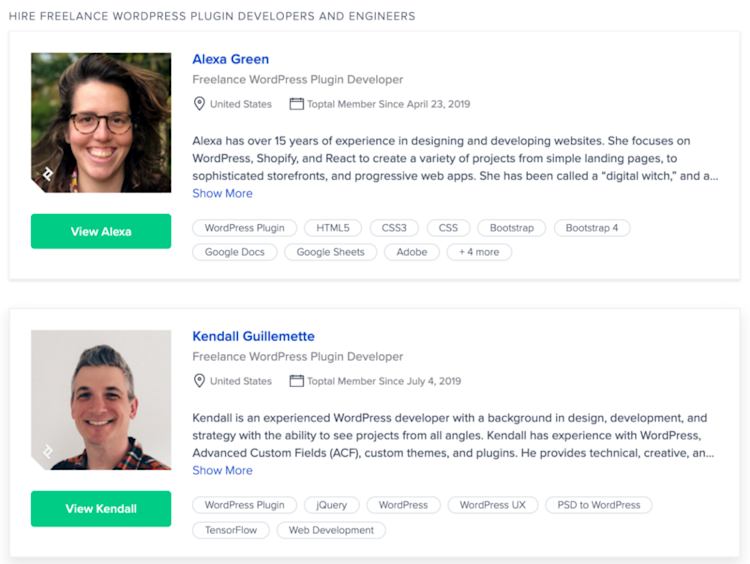
Rather than offering generic coding work, developers like Alexa and Kendall focus their programming skills on creating custom WordPress plugins, websites, and themes for clients.
Toptal is one great resource for freelance developers to find jobs — and for potential clients to discover you, too. That’s because, unlike a lot of freelance marketplaces, they focus mainly on tech and software projects. Another tech-focused freelance marketplace is Stack Overflow’s “careers site that’s by developers, for developers”.
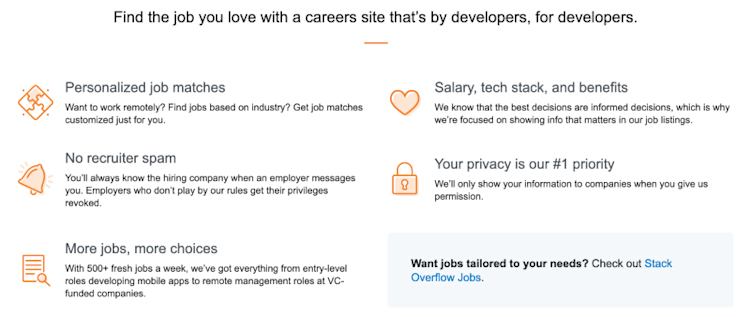
Before you start applying for freelance gigs, create a portfolio of past projects. (Web developer and blogger Mikke Goes has a great guide to building a freelance web developer portfolio.) And don’t forget to ask for testimonials and reviews from past clients, too.
If you’d rather not deal with clients, job applications, and portfolios, there are plenty of other ways to make extra income as a developer — especially if you’re already creating content.
2. Monetize your content
If you’re already creating content for a blog, podcast, or YouTube channel, monetizing your content can help you bring in extra cash without starting from scratch.
One of the most popular ways to monetize content is through affiliate marketing. In blogging, affiliate marketing means linking to outside products and services in exchange for commission on each sale.
Low barriers to entry make affiliate marketing a favorite of bloggers across niches — if you have an audience, you can become an affiliate. Plus, with 81% of brands leveraging affiliate marketing, chances are that one of your favorite products or tools has an affiliate program.
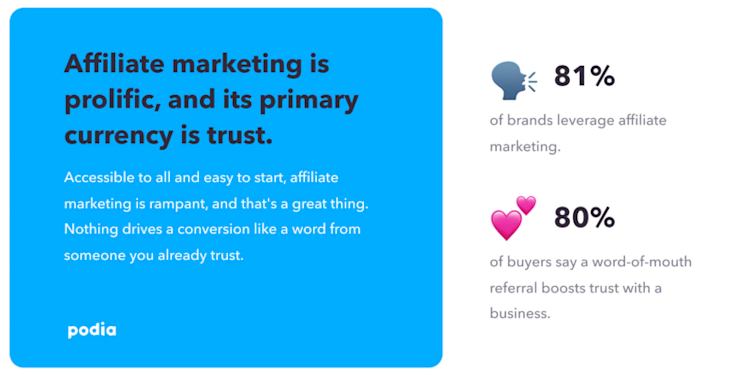
Founder of Entrepreneurs on Fire, John Lee Dumas, knows the power of monetizing content through affiliate marketing. John started earning income from his Eofire.com blog in 2012 — and he’s made $19+ million in gross income so far.
In 2019 alone, John’s blog brought in over $2 million in gross income, with 16% of that coming from affiliate marketing.
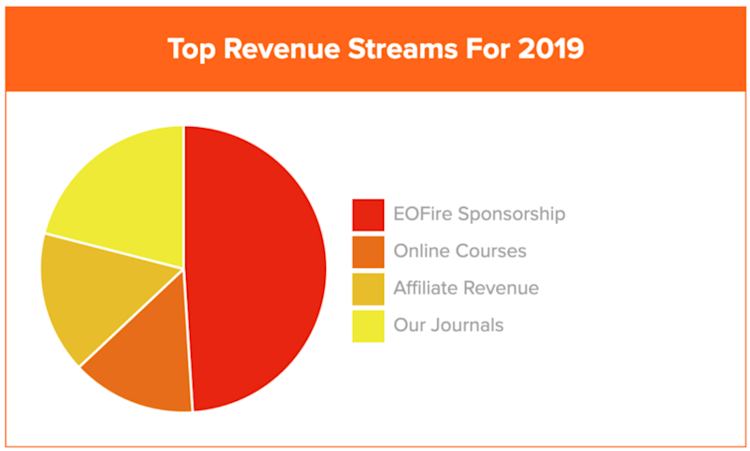
For more tips on making money from your blog, check out these five blog monetization strategies.
Monetizing video content can be a bit more complicated, especially if you host your videos on YouTube. The video social media platform has strict monetization guidelines.
To make money from advertising, you must have:
-
An approved AdSense account
-
At least 1,000 subscribers
-
4,000 public watch hours in the last 12 months
You don’t need to be part of YouTube’s Partner Program to make money from your video content, though.
As a podcaster, you have a few different options to monetize your podcast. You can seek out sponsors, join an affiliate program, or even offer paid product reviews.
And sponsorships can be a win-win for podcasters and advertisers alike — 54% of consumers are more likely to consider brands they heard advertised on a podcast.
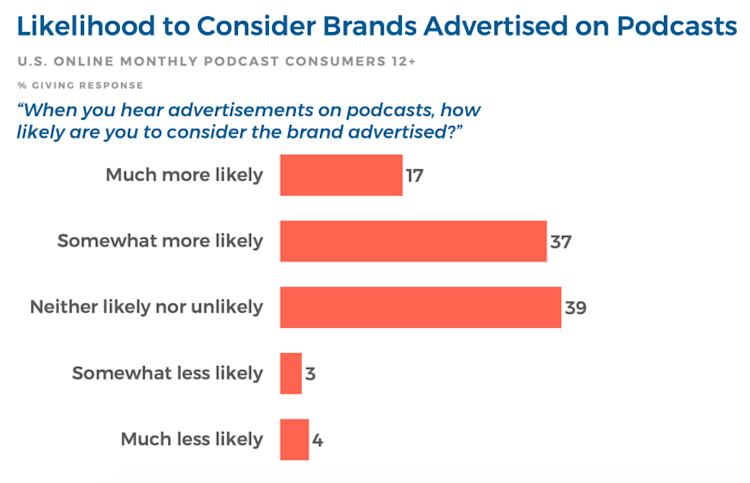
To find advertisers for your podcast:
-
Use a podcast advertising network like AdvertiseCast or Midroll.
-
Use a podcast host like Blubrry and Libsyn. Podcast hosting platforms often reach out to podcasts hosted on their service with ad opportunities.
As you build your podcast audience, advertisers may start reaching out to you, particularly if you’re focused on a niche that aligns with their target audience.
Whether written or recorded, the best content answers your audience’s most common questions and obstacles. For example, programming tutorials are a great way to help your audience learn a new programming language or troubleshoot a bug.
Of course, once you start creating that helpful content, don’t limit yourself to just one channel.
Co-founder of Transistor.fm Justin Jackson started his blog in 2008.

The blog grew into a podcast. That podcast became a membership website.
From there, Justin built his self-made business selling online courses, digital downloads, and coaching for developers, making over $100k on Podia.
From Justin’s story, it’s clear that monetizing content can be more than a way to make some extra money on the side — it can also turn your side-hustle into a rewarding full-time job.
But if you want to create and monetize something other than content — and you’ve got a penchant for mobile development — check out our next tip.
3. Build a mobile app
The mobile app market is bigger than ever, and its growth shows no signs of slowing down.
In 2018, global mobile app revenue amounted to over $365 billion. In 2023, mobile apps are projected to generate more than $935 billion.
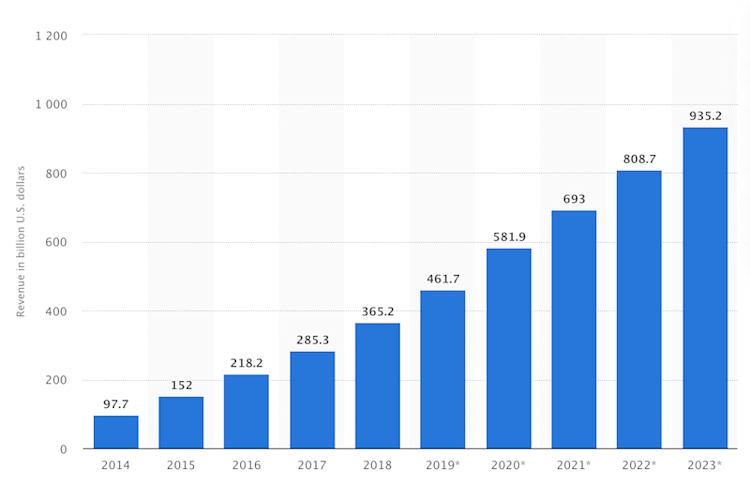
For mobile software developers, building and monetizing an app offers an opportunity to get a slice of that revenue pie.
The main platforms in the mobile app space are Android (through Google Play) and Apple (through the Apple App Store).
The two app stores have already reached a combined 100 billion total app downloads for the year, and global app spending is set to pass $100 billion this year, too.
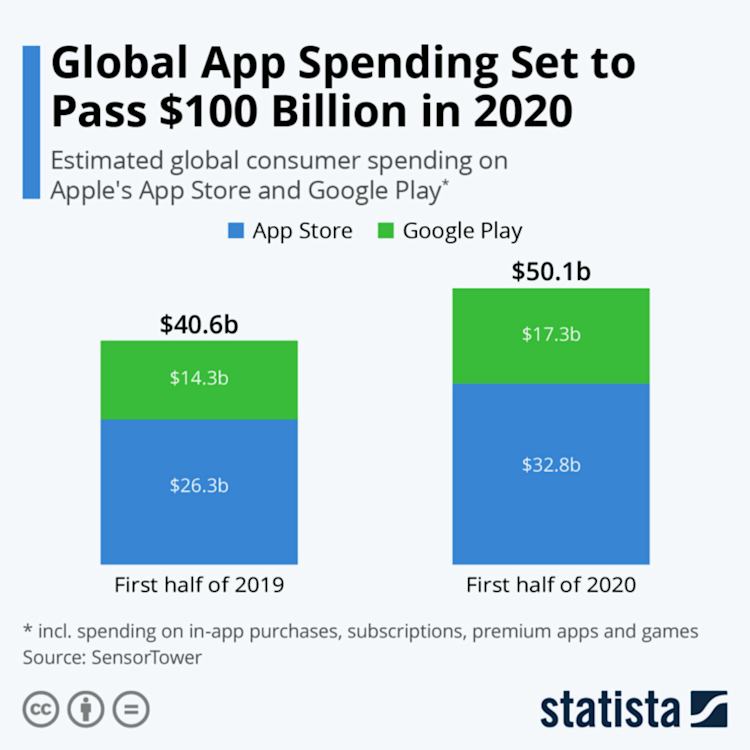
As you can see, Apple users spend more on apps than Android users. If you want to target that market, you should learn Swift, Apple’s own programming language. You also need a computer running Mac OSX to build iOS apps.
If you choose to build apps for Android users, you have more options for programming languages, including Java, Kotlin, C++, and C#.
Before you create your app, make sure that you do some research to validate your product idea and ensure there’s a market need for your app.
After all, it’s hard to make money from an app that nobody downloads or uses — and lack of product-market fit is the number one reason startups fail.
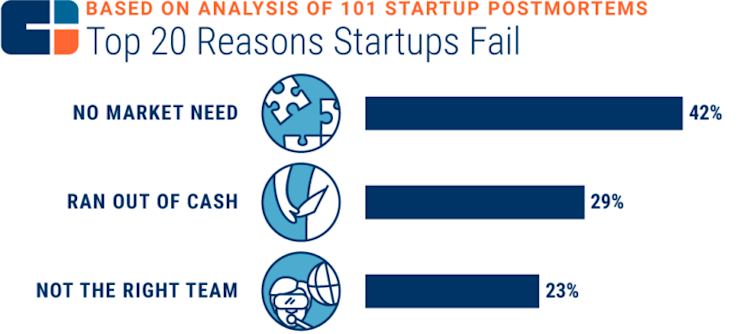
Once you create your app, you can start making money from it. In this guide to app monetization, AppInstitute CEO Ian Naylor recommends these popular ways to monetize an app:
-
Make ad revenue through ad networks like InMobi, AdMob, and Conversant.
-
Create an upgraded paid version of your app with no ads.
-
Run in-app purchases, the number one driver of app revenue.
-
Join an affiliate program to make commission from in-app promotions.
-
Offer investors free marketing within your product in exchange for investment.
Mobile app development strikes a sweet spot between active and passive income — while they require effort upfront, you only need to update them occasionally and keep an eye out for bugs.
If you’d prefer something a little more hands-on — and would rather work with other humans than with lines of code — our next tip might be more up your alley.
4. Coach, mentor, or create a community for other developers
If you’re experienced in your field, you can offer mentorship, coaching, and community to other developers who are in the same field, facing the same obstacles you’ve overcome.
You could go the classic consulting and coaching route, like Eliot Sykes, a developer and open-source contributor who coaches Rails developers. Or, like John Sonmez of Simple Programmer, you could offer life coaching to other developers.
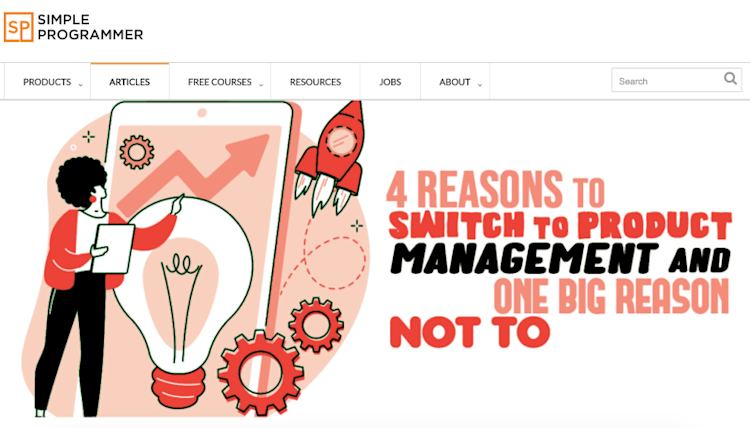
The coaching industry is a profitable one — the US market for personal coaching is expected to reach $1.34 billion by 2022, with the average annual income for specialty coaches reaching over $100,000 per year.
And people want to find mentors in their industry. 47% of people consider mentors to be important, and 29% say they’re very important.
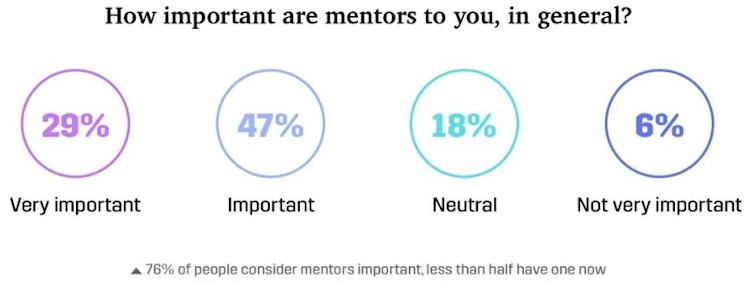
If you don’t have the time to find consulting clients or offer one-on-one coaching, but still want to connect with other developers, consider creating a community.
There are many different types of membership communities, but the overall idea is to create a subscription that offers your members something valuable, such as exclusive content, early access to products, or a community of developers with similar goals.
Justin Jackson does just that with MegaMaker Club, a “private community for geeks who make stuff”.
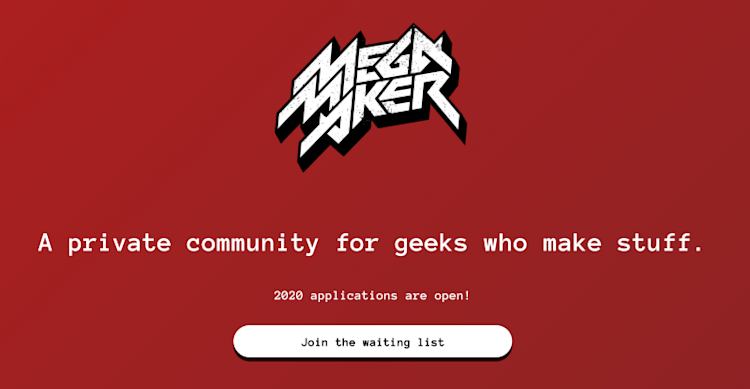
MegaMaker connects developers and designers who share similar goals, so they can form partnerships, share advice, and support each other.
Justin sells a lifetime membership that gives members access to private forums, a Slack group, member resources (like videos and downloads), and, above all else, a community in which to “ask questions, get answers, and share progress”.
And those lifetime memberships are well worth it — MegaMaker has grown so popular that Justin now has a waiting list for new members.
That said, if you have insights to share with fellow developers, but would rather sell a digital product than a membership, consider our next two tips.
5. Write an ebook
Ebooks are one of our favorite digital downloads. You can use them as a lead magnet, include them in an online course, or sell them for passive income.
Selling information products is a great way to make some money on the side, and ebooks are one of the most popular info products on the market.
The global ebook market is expected to reach nearly $18 billion in annual revenue by 2025.
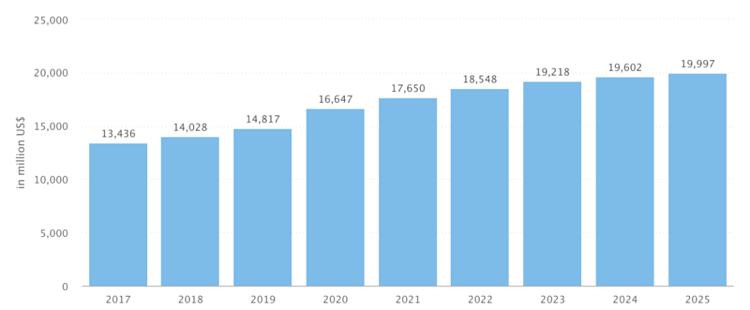
You don’t have to sell Kindle ebooks on Amazon to be a part of that growth. In fact, you can make even more money by selling ebooks on your own website.
There are a lot of advantages to using your own site, including:
-
You don’t have to pay an Amazon listing fee.
-
You get paid more quickly.
-
You have more control over your branding, landing pages, and customer experience.
Don’t have a site yet or are in the market for a new one? Podia’s all-in-one platform makes it easy to create your own website to sell ebooks and online courses — all from a single dashboard. Get started today with a free 30-day trial of Podia.
Regardless of your site (or site platform) of choice, the ebook creation process might seem time-consuming, especially if you’re looking for a side gig, but writing your first ebook doesn’t have to be a months-long endeavor.
You can write an ebook in one week, then sell it to make passive income for months or years to come.
To save even more time, you can also repurpose your blog content into an ebook.
Take your most popular blog post and expand on it. If one article doesn’t give you enough content for an ebook, search through your blog for supplementary content. Then, once you finish writing, use a platform like Draft2Digital, Reedsy, or Vellum to easily format your ebook.
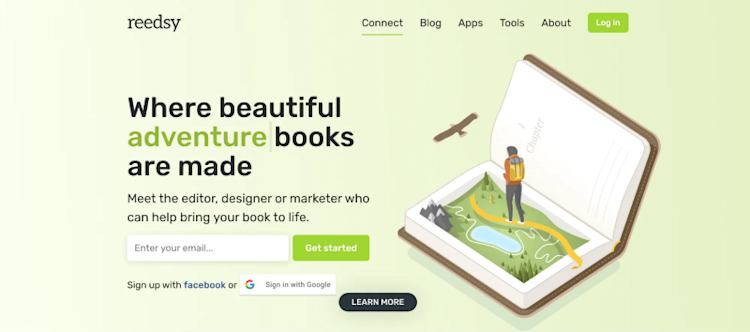
No matter how you go about writing your ebook, make sure that the topic matches both your expertise and your audience’s pain points. What topic are you the “go-to” person for when other developers have questions?
Hackerpreneur founder Marc Eglon used his expertise to write, publish, and sell The Tiny Product Manual ebook.
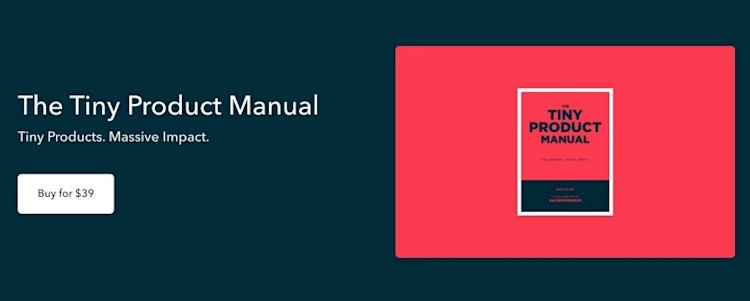
On the ebook sales page, Marc writes:
“I’m a scientist, writer, designer, and publisher. I’m obsessed with making things (like Hackerpreneur Magazine & Letterlist.com).
Things I believe: 1. We can all self-actualise and put a dent in the universe. 2. We still underestimate the power of this ultra-connected world. 3. We owe it to the world to share our unique talents. 4. We do that by making and sharing. 5. Everything starts tiny.”
Marc tells potential readers exactly what makes him an expert, building credibility and sharing a preview of his point of view with potential readers.
To sell digital downloads on your website, you need to build that credibility and let readers know what results they can expect from your ebook. And if you think you’re not an expert, don’t worry — you still have valuable experience to share with your readers.
Speaking of sharing your valuable expertise, I have one more developer-friendly money-making method to share with you today.
6. Sell online courses
Online courses are another great (mostly) passive income option for developers looking to share their knowledge with others. You build your online course once, then all that’s left to do is promote your course to potential students.
Like ebooks, the market for online learning is growing fast. The e-learning market is expected to grow at an annual rate of 8%, reaching a whopping $375 billion by 2026.
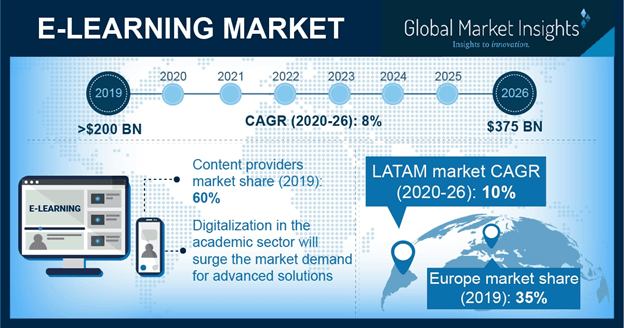
To outline your online course, start with the end result you want your students to achieve, then create a step-by-step plan to reach that result. Each of those steps is a lesson or module in your online course.
Online courses are also a great way to repurpose content you’ve already created. Chances are, if you know enough about a topic to write an ebook or make a video about it, you know enough to create, teach, and sell an online course.
For example, developer and trainer Reuven Lerner turned his book, Practice Makes Python (recently republished as Python Workout), into an online course.
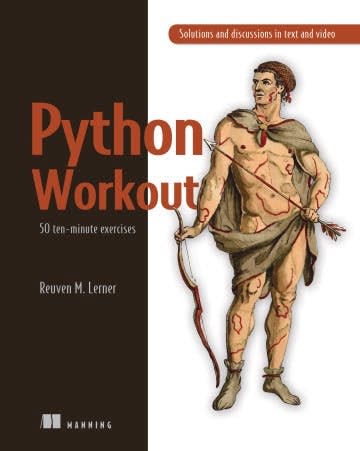
After publishing his book in 2014, Reuven created a series of videos to guide students through the exercises. From there, he started to develop online courses as lead magnets to grow his email list.
Now, Reuven sells nearly 20 different online courses on his site, geared toward students of all different skill and experience levels.
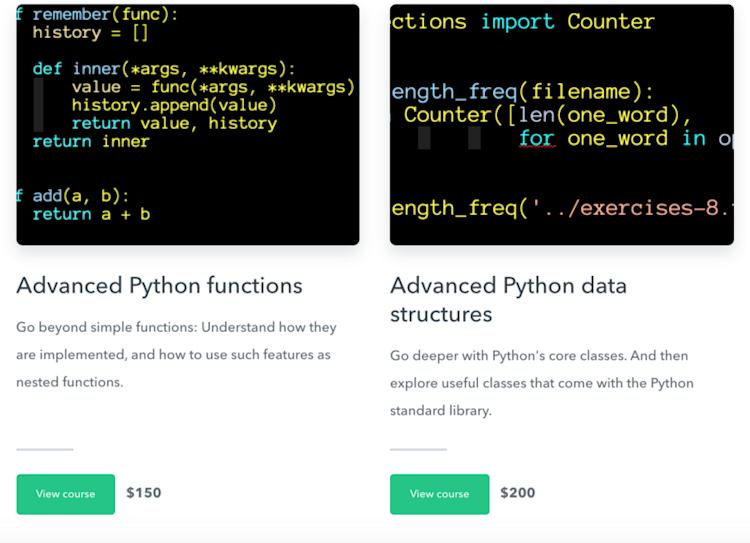
To other developers looking to create online courses, Reuven recommends three things:
-
Be more than a subject matter expert; master the art of explaining.
-
Do pilot tests before recording your lessons.
-
Narrowing your focus down rather than covering an entire subject.
“Teach less and make it better and more specific. My online courses are a few hours long. I think the longest one I have is my GIT course, which is nine hours of video. That’s huge.
Don’t teach JavaScript, teach intro objects in JavaScript … Something that if people see it, they’ll think, ‘Oh, that fits my needs. That’s what I need right now. I’m going to buy that.’”
Check out these 16 strategies for marketing your online course — or sign up for a free 30-day trial to start building your course on Podia.
Diversify your income as a developer
Your programming skills open up a lot of opportunities to diversify your income. You can make some extra cash on the side or completely transform your career and become self-employed full-time.
Whatever path you choose, here are six ways to generate side income as a developer:
-
Become a freelancer and find gigs online.
-
Monetize your existing content, like your blog, videos, or podcast.
-
Build and monetize a mobile app for iOS or Android.
-
Coach, mentor, or create a community for like-minded developers.
-
Write and sell an ebook.
-
Sell online courses that focus on a specific area of expertise.
Now go forth, developers, and start spreading your knowledge, growing your income, and seeing where your hard work can take you.

